Which Eco-Friendly Low Voltage Lithium Battery is Winning the Sustainability Race?
Which Eco-Friendly Low Voltage Lithium Battery is Winning the Sustainability Race?
In an era where sustainability and renewable energy sources are becoming increasingly important, the race to find the most eco-friendly low voltage lithium battery is on. With numerous options available, consumers and businesses alike are keen to invest in a battery that not only provides efficient power but also minimizes the environmental impact. Let's delve into the world of low voltage lithium batteries and explore which one might be winning the sustainability race.
1. Lithium Iron Phosphate (LiFePO4): .
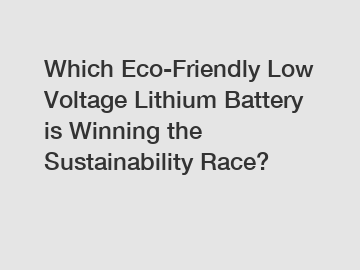
One of the most promising contenders in the eco-friendly low voltage lithium battery market is the lithium iron phosphate (LiFePO4) battery. Known for its longevity, high energy density, and low toxicity, this battery chemistry has gained attention for its sustainability credentials.
LiFePO4 batteries have a longer lifespan compared to other lithium-ion batteries, making them a preferred choice for applications that require a consistent supply of power over an extended period. This longevity reduces the need for frequent battery replacements, thereby minimizing waste and contributing positively to the environment.
Moreover, LiFePO4 batteries are considered safer and less prone to thermal runaway incidents, which can help further enhance their sustainability quotient. These batteries also have a lower self-discharge rate, meaning they retain their charge for longer periods without losing capacity. As a result, energy efficiency is maximized, and the overall environmental impact is reduced.
2. Lithium Nickel Manganese Cobalt Oxide (NMC): .
Another battery chemistry commonly found in low voltage lithium batteries is lithium nickel manganese cobalt oxide (NMC). While NMC batteries possess a high energy density and offer exceptional performance, their sustainability features are slightly more complex.
Additional resources:What Is Energy Storage System(ESS)?
Timeast Pipeline Service: Revolutionizing Oil & Gas Transportation with Advanced Technology
Which Lifepo4 280ah battery offers the best value for purchase?
Which is better AC coupled or DC-coupled inverters?
BIPV Structure: How Will it Revolutionize Sustainable Architecture?
Which 2 inches aluminum diaphragm pump offers the best value for purchase?
Revolutionizing Military Power: Lithium Storage Batteries
The resource extraction process for NMC batteries involves mining nickel, cobalt, and manganese, which raises concerns regarding the environmental impact of this process. The mining industry has faced scrutiny for its negative consequences on wildlife habitats, water sources, and local communities. Additionally, the cobalt mining industry has been associated with human rights concerns and child labor issues in some regions.
However, there have been significant efforts to improve the sustainability of NMC batteries. Companies are exploring recycling programs to recover metals from end-of-life batteries, reducing the need for new resource extraction. Additionally, researchers are investigating alternative materials that can replace or reduce the reliance on cobalt, further enhancing the sustainability profile of NMC batteries.
3. Lithium Titanate (LTO):
Lithium titanate (LTO) batteries are gaining attention for their exceptional performance and sustainability features. These batteries utilize lithium titanate as the anode material, which offers a range of advantages. LTO batteries have an extended lifespan, capable of enduring thousands of charge-discharge cycles without significant capacity degradation. This longevity reduces waste and extends the overall life cycle of the battery, enhancing its sustainability.
Additionally, LTO batteries have excellent thermal stability, reducing the risk of hazardous incidents. The use of lithium titanate also improves the battery's overall safety and lowers self-discharge rates, ensuring efficient power storage over extended periods.
Furthermore, LTO batteries are considered more environmentally friendly due to their non-toxic nature. The absence of toxic materials contributes to responsible waste disposal and recycling processes. LTO batteries also have a higher resistance to extreme temperatures, making them suitable for a wide range of applications in various climates.
Conclusion:
While all three battery chemistries discussed have their own sustainability merits, the lithium iron phosphate (LiFePO4) battery stands out as the clear winner in the eco-friendly low voltage lithium battery race. With its long lifespan, low toxicity, and high energy density, LiFePO4 batteries offer a superior combination of performance and sustainability. However, ongoing research and technological advancements may pave the way for further improvements in battery sustainability, making it an exciting field to watch in the coming years. As consumers and businesses prioritize environmental impact, investing in eco-friendly low voltage lithium batteries will be crucial to ensure a greener and more sustainable future.
For more Efficiency hybrid storage inverter, Hospital hybrid storage inverter, Compact grid connected inverterinformation, please contact us. We will provide professional answers.
Additional resources:How do you charge a car battery in Australia?
What are the advantages of hydrotesting pipelines?
Inverter Battle: 3-Phase vs. Single Phase
The Future of Solar Energy: Discover the Power of Integrated PV Systems
Which Trace Heating Installation Services Stand Out for Energy Efficiency?
What are the advantages of diaphragm pump?
Which modern piston pump characteristic enhances efficiency?
254
0
0
Related Articles
-
Which compact size low voltage lithium battery is the best for maximizing energy savings?
Which compact size low voltage lithium battery is the best for maximizing energy savings?
116
0
0
-
272
0
0
-
131
0
0
-
113
0
0
-
193
0
0
-
Effortless Power: Low Maintenance Lithium Battery
In today's fast-paced world, batteries play an integral role in our daily lives.
184
0
0
-
195
0
0
-
203
0
0

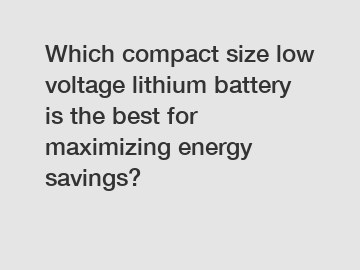
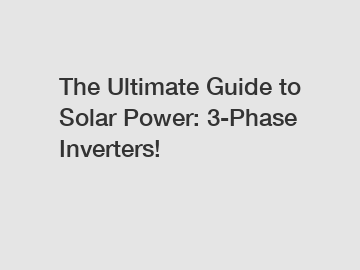

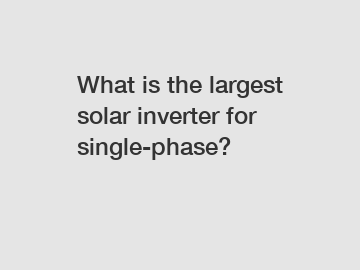
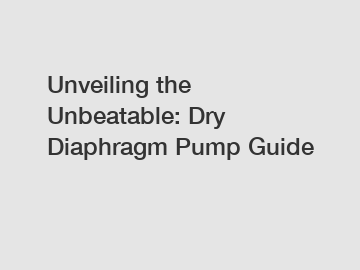
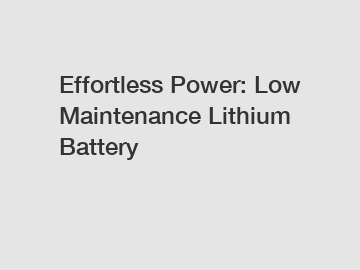

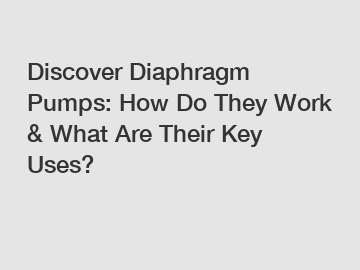
Comments
All Comments (0)